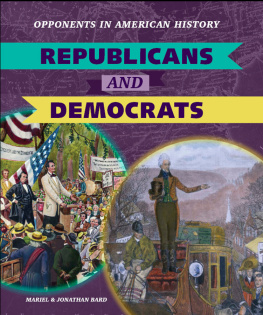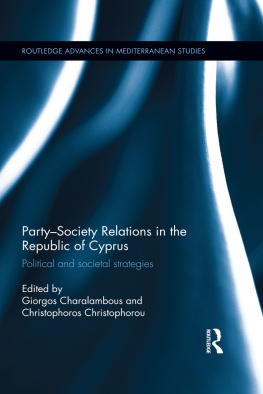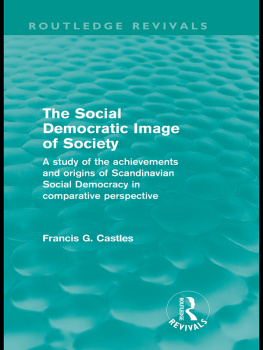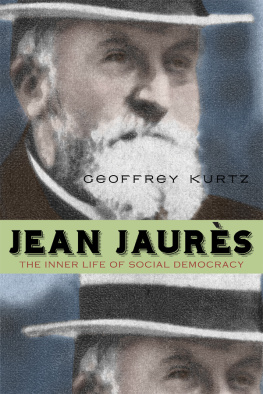
4 by Northern Illinois University Press
Published by the Northern Illinois University Press, DeKalb, Illinois 60115
Manufactured in the United States using acid-free paper.
All Rights Reserved
Library of Congress Cataloging-in-Publication Data
Gabriel, Elun T.
Assassins and conspirators : anarchism, socialism, and political culture in imperial Germany / Elun T. Gabriel.
pages cm
Includes bibliographical references and index.
ISBN 978-0-87580-481-1 (cloth : acid-free paper) ISBN 978-1-60909-153-8 (e-book)
1. GermanyPolitics and government18711918. 2. Political cultureGermany19th century. 3. Political cultureGermany20th century. 4. Anarchism.
5. Socialism. I. Title.
JN3388.G33 2014
320.94309034dc23
2013041736
For my father and mother,
who encouraged in me a love of
reading, writing, and learning,
and for Donna,
to whom I owe so much
Contents
Anarchy, Socialism, and the Enemies of Order in the German Empire: 18711878
Debating the Socialist Law: 1878
The Specter of Anarchism and the Normalization of Social Democracy: 18781885
The Socialist Law Is the Father of Anarchism: 18861890
Socialism and the Public Sphere in the Era of Anarchist Propaganda of the Deed: 18901902
Anarchist Utopianism and the Internal Development of German So cial Democracy: 18901914
The Challenges of Liberal Political Culture in the Decade before the Great War: 19031914
German Political Culture, Democracy, and Terrorism
I first discovered anarchism as a political theory in a high school philosophy class with Tom Murray. As an undergraduate at Haverford College, I deepened my exploration of the topic working with two fine historians, Jane Caplan and Sharon Ullman. From the moment of my arrival for graduate study at the University of California at Davis, Bill Hagen was a source of constant intellectual stimulation in the realms of social theory and German history (and would have been with jazz piano, if I had proved receptive). Thanks to his penetrating critiques of my dissertation over the entire course of its development, the foundation for this book is much sturdier than it would otherwise have been. Along with theoretical and practical guidance, Bill was also a source of pithy advice (the bon mot to which I have tried most diligently to adhere is never quote anything boring). The other members of my dissertation committee, Cathy Kudlick and Ted Margadant, offered astute comments about structure, style, and argument (Cathys advice to prune your prose! continues to ring in my ears), as well as valuable comparative observations from their vantage point as historians of France. I am grateful as well for the insights and support of many other faculty, fellow graduate students, and support staff at UC Davis.
On the long road from dissertation to book, I received feedback and advice from many quarters, which has improved the quality of the final workthe customary disclaimer that the remaining failings are mine alone certainly applies here. My companion in anarchism-related research, Richard Bach Jensen, has been the source of several invaluable leads on sources, as well as stimulating conversation and support. Rick has shown a rare generosity of spirit in reading my essays, sharing his own, and allowing me to draw on his near-encyclopedic knowledge of the history of anarchist crime and its policing. I also appreciate the many scholars who have provided constructive criticism on various aspects of this project over the years, including Celia Applegate, Roger Chickering, and Nancy Reagin at a Transatlantic Doctoral Seminar in German History in Berlin; Martin Geyer, Thomas Lindenberger, and Eric Weitz at a Transatlantic Summer Institute in German History sponsored by the Center for German and European Studies at the University of Minnesota, Twin Cities; the graduate student attendees at these workshops, many of whom are now distinguished historians; Michael Hughes, Vernon Lidtke, William Smaldone, and George S. Williamson, who commented on and discussed with me conference papers related to the book; and James Retallack, who offered perceptive criticism and very helpful leads on archival sources. I have been fortunate to receive wise counsel (as well as friendship) on many occasions from Andy Rotter, as well as my colleagues in the St. Lawrence University History Department, in cluding Judith DeGroat, Evelyn Jennings, and Liz Regosin. Leah Farrar, one of the most talented and hard-working students I have ever encountered, was an excellent research assistant. I appreciate the support for this project shown by Amy Farranto, my editor at NIU Press, who has guided me through the process of review and revision for longer than either of us expected at the beginning. The team at NIU Press, under managing editor Susan Bean, has made turning a manuscript into a book as smooth as it could be, and copyeditor Marlyn Millers good judgment and amazing attention to detail have been invaluable.
I have benefited from universally helpful library and archive staff throughout the research and writing of this book. This work would have been much harder without the interlibrary loan staff of UC Daviss Peter J. Shields Library and St. Lawrence Universitys Owen D. Young Library. Archivists and librarians at many institutions patiently helped me navigate their collections: the Geheimes Staatsarchiv Preuischer Kulturbesitz in Berlin; the Bundesarchiv Berlin-Lichterfelde, the Brandenburgisches Landeshauptarchiv in Potsdam; the Staatsbibliothek zu Berlin; the Landesarchiv Berlin; the Archiv und Bibliothek der Sozialdemokratie at the Friedrich-Ebert-Stiftung in Bonn; the Bayerische Staatsbibliothek in Munich; the Deutsche Bcherei in Leipzig; and the International Institute of Social History in Amsterdam.
Just as valuable has been the financial support that kept my research going. I gratefully acknowledge the support of the St. Lawrence University Academic Deans Office for a Faculty Research Fellowship Award and three Scholarly Development Awards, as well as the SLU History Departments Vilas Research Fund, which made several research trips possible. I received funding at earlier stages of this project from the Davis Humanities Institute Predoctoral Fellowship; the UC Davis Office of Graduate Studies, Social Sciences & Humanities Division; UC Davis Graduate Studies Association; and the UC Davis History Department.
Some material from chapters 2, 4, and 5 has appeared, in substantially altered form, in Elun Gabriel, The Left Liberal Critique of Anarchism in Imperial Germany, German Studies Review 33, no. 2 (May 2010): 33150.
Throughout the long process of writing this book, my family (including my in-laws), friends, and university colleagues have made life immeasurably easier and more pleasant, and I thank them all. My father, Mark Gabriel, has assiduously read almost everything I have written, taking far more interest in my work than could reasonably be expected from someone outside the university environment. My mother, Marianne Mejia, and her husband, Freddie, have offered an inspiring example of joie de vivre, reminding me of the value of lifes many non-academic aspects while also showing encouragement for my scholarship. Though my daughter, Josephine, has often acted more as an impediment than a facilitator of the books timely conclusion, I am grateful for the great joy she brings into my life, as well as the sense of proportion she provides about what is truly important.
I owe far more to my wife, Donna Alvah, than could possibly be conveyed in these few lines. I am privileged to be married to a woman who is not only intelligent and fun but also a superb historian. Our almost daily discussions of all aspects of history and the historians craftfrom interpreting sources to writing compelling narrative to format ting noteshave made me a better historian, and my books development has certainly benefited from watching her go through the process ahead of me. Her emotional support and unwavering faith in me were critical to keeping me going over the long slog of writing and revising. For everything she is to me, I thank her.
Next page






